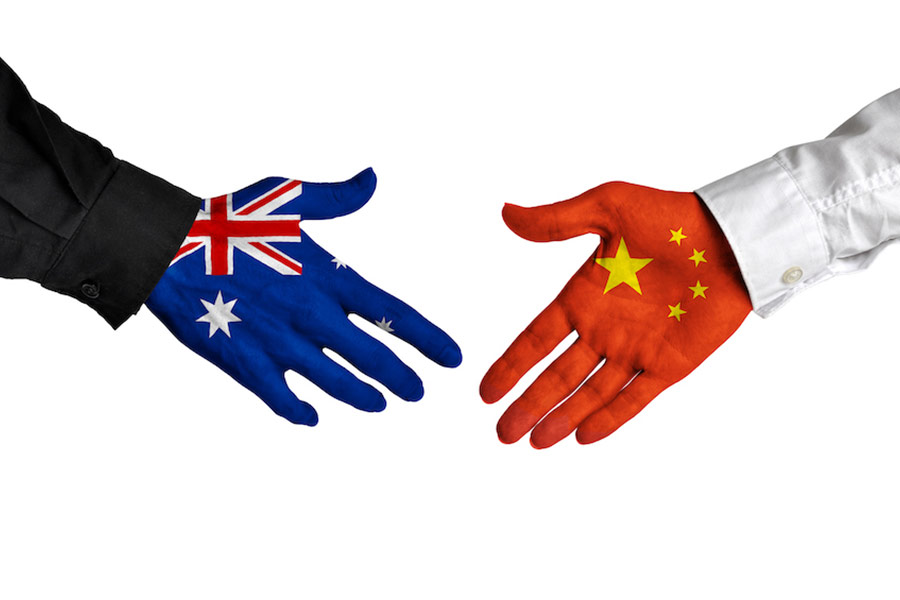Mar 16, 2023 by Mark Dingley
Without a doubt, the visit at the end of last year by Foreign Minister Penny Wong to the Chinese capital was a landmark event for the Australian Government.
When Wong touched down in Beijing, it was the first visit to China by an Australian minister in three years. And Australian exporters across all industries gave a collective sigh of relief.
China is a massive market for Australian exporters, and for Chinese importers across the agriculture, resources and services sectors. The meetings signal the potential end to tariffs on $20 billion in Australian exports for the past three years.
To understand why Penny Wong's Beijing visit is such a critical move for exporters, let's look at Australia-China relations in recent years.

Scott Morrison’s Prime Ministership saw relations sink to a new low between the two countries, with insults and even references to war.
Australia blocked Chinese telco Huawei from accessing our 5G network on national security grounds
China imposed hefty trade tariffs in November 2020 on $20b worth of Australian goods.
In March 2021, Beijing announced strict 116-218% tariffs on all bottled Australian wine imports until 2026. As a result, Australia's $1.2b wine export industry was slashed to just $200 million.
Penfolds maker Treasury Wine Estates was forced to pivot to other markets in Asia and America, and even launched a line of Penfolds made within China itself in a plan to side-step the wine tariffs and meet the continued strong demand for the Penfolds brand in China.
But it's not only the wine industry that suffered.
When the coronavirus erupted in China and authorities shut down its live seafood import trade, rock lobster producers in South Australia suffered massive losses.
Before they were blocked, Australian exporters sent $750m worth of lobster to China every year, making up 90% of its market.
Treasury estimates released last year by Josh Frydenberg revealed total exports of goods to China targeted by the trade sanctions fell by some $5.4b over the year to the end of the 2021 June quarter.
Exports of those goods to the rest of the world over the same period increased by $4.4b.
The important thing to note is that the restrictions on Australian goods are illegal and were never officially acknowledged by the Chinese Government.
China argued that importers were making their own investment decisions not to purchase Australian products. So when crates of wine piled up at Chinese ports and lobsters rotted on airport tarmacs, the Chinese authorities blamed it on labelling or pest-control issues.
That means sanctions cannot be removed with a simple decree from Beijing – no matter how well the meetings go. Instead, it's Chinese businesses that will give a sign to Australian exporters that the sanctions are over.

While it's too early to say if the visit will result in China lifting the trade sanctions, the signs are positive.
In the meetings between Wong and her Chinese counterpart Wang Yi, Wong advocated for China to lift its tariffs on Australian exports, and they recommitted to facilitating business relationships.
Wong said they agreed to restart "the Australia-China CEO Roundtable and visits by bilateral business delegations".
She also said following the meeting, there would be further developments on various trade issues related to "blockages" impacting about $20b worth of Australian exports.
Australian business leaders are already anticipating a trip to China to reconnect with businesses, partners and customers in 2023.
Treasury Wine CEO Tim Ford told the Sydney Morning Herald, "While it's too early to tell whether there will be a change in tariffs for Australian wine in the short term, the dialogue is encouraging, and we strongly support further diplomatic and business engagement ... We remain committed to the Chinese market for the long term."
Australian lobster farmers and winemakers were already attracting renewed interest from Chinese importers and distributors before the meetings. According to the president of the Australia-China Business Council, David Olsson, "At the business level, members are reporting that the number of calls and email communications they're getting from Chinese companies has ramped up considerably. It’s as if Australia is back on the radar."
But as Business Council chief executive Jennifer Westacott warns, it’s still early days and "businesses are realistic about how challenging it is to manage this relationship".

China is a market that most Australian manufacturers cannot afford to ignore. Australia's largest two-way trading partner, accounting for nearly one-third (31%) of our trade with the world.
Check out the latest trends:
Speak to the experts, and, wherever possible, visit potential export markets for yourself. This will help you to understand the local customs, consumers and the environment in which you'll be trading.
Use all the resources available to you. For example, Austrade, the Australian Government's trade, investment, education and promotion agency, provides in-depth advice and support on how to enter overseas markets.
Chinese customers generally do a lot of research into products before purchasing, so it’s essential to ensure that you have detailed product information readily available on the pack and online in Chinese, such as ingredients, provenance and so on.
Get support from the people who know the local market and how exports work. This might be local advisers and suppliers. Also, draw on the expertise of your technology and equipment suppliers, such as Matthews Australasia. We can help you identify the right technology for your export needs.

Chinese food-related laws and standards are constantly evolving. So, to ensure your products make it to the shelves, you need to know the rules. For example, your products must pass a quarantine inspection performed by China Inspection and Quarantine (CIQ), which operates directly under the General Administration of Quality Supervision, Inspection and Quarantine (AQSIQ), one of China's foremost quality management authorities.
Head to the Austrade export services website to see the laws and regulations for exporting your products to China.
Not all Chinese standards align with international standards, so check carefully for the Chinese laws, regulations, standards and certification requirements that apply to your industry.
Looking for more tips for export success? Check out our article on exporting to China.